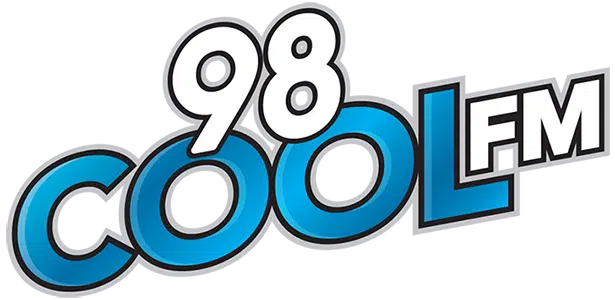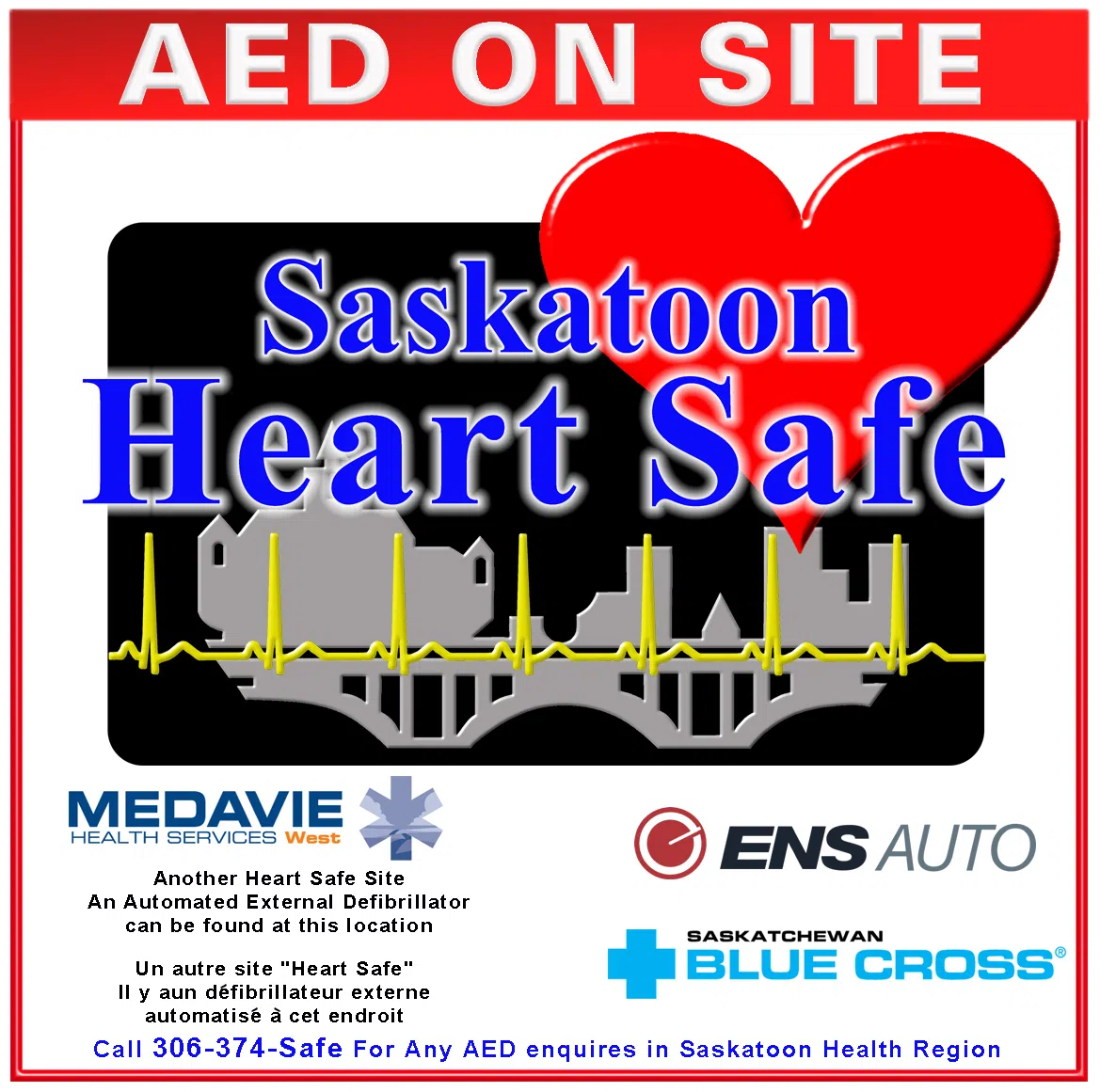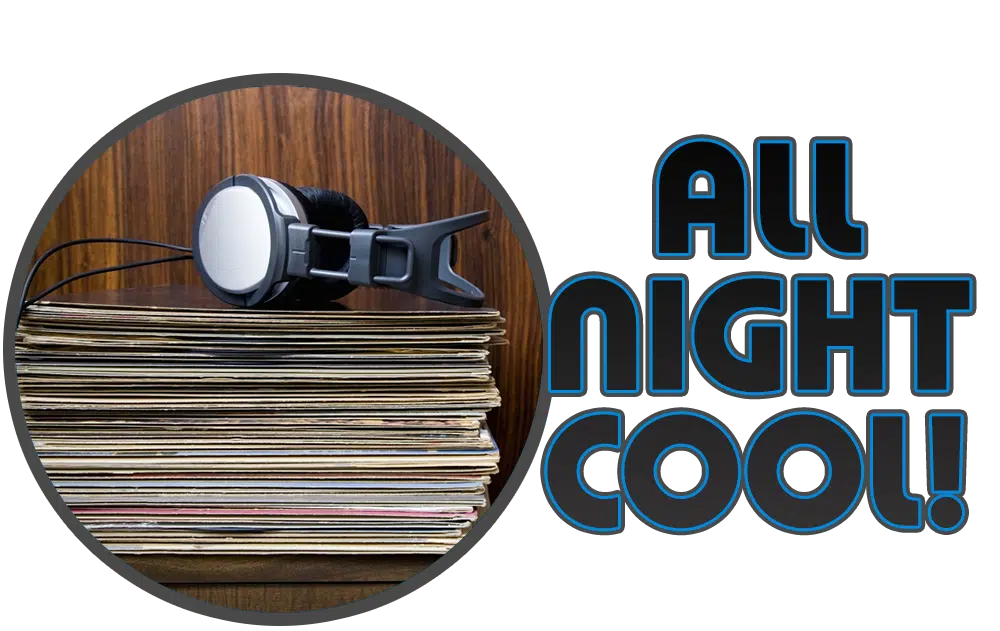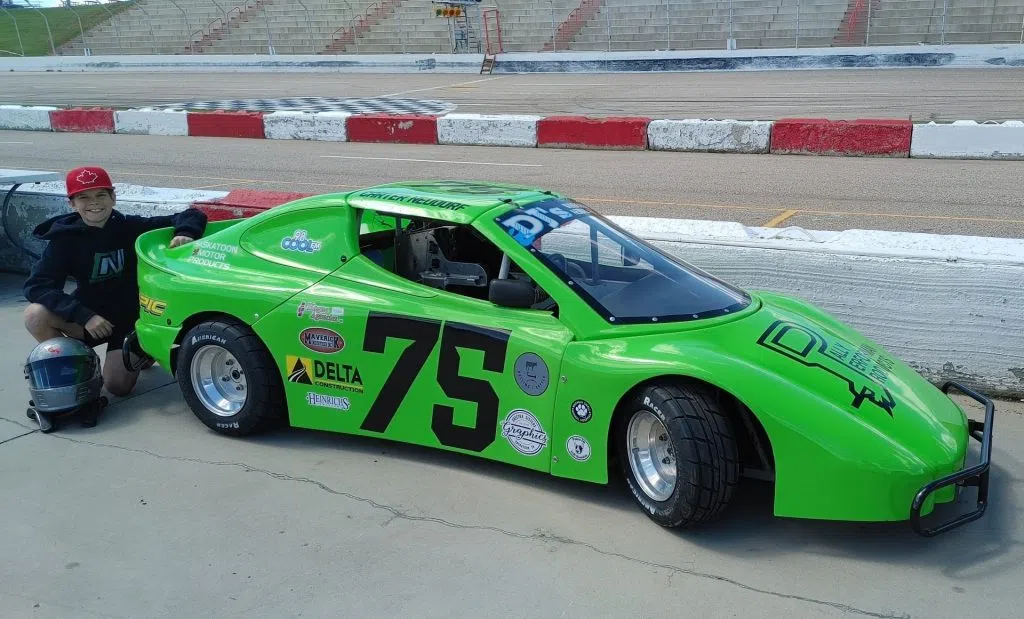February is Heart Health Month in Canada, a time to raise awareness about cardiovascular health, as well as become equipped with the knowledge needed to potentially save a life.
Since 2005, 40 people have had their life saved by a bystander while experiencing cardiac arrest in Saskatoon. This was made possible through the Saskatoon Heart Safe Program, which works with businesses and organizations throughout the Saskatoon area to place Automated External Defibrillators in public spaces.
Troy Davies with Medavie Health Services West says when encountering someone experiencing cardiac arrest, the three most important things you can do are begin chest compressions, locate and utilize an AED, and call 9-1-1.
He says early CPR is crucial when it comes to saving lives, and every minute without CPR, the patient’s chance of survival will decrease by about 10%.
“We really want people to be aggressive and just start pushing on the chest. Our comm. centre will walk you right through that…If you’re in our Heart Safe program, we will be able to tell you if you have an (AED) machine in your building, and we will direct you to grab that machine, out it on the patient, and request to shock,” Davies explains.
He adds that AEDs are extremely user-friendly, safe, and won’t shock the patient if their heart is still functioning, so there should be no reason to be afraid to use one.
“The AED will only work on v-fib, and that’s when your heart’s quivering at a point when you’re in cardiac arrest. Even if someone’s passed out or having a stroke or just unconscious, and you put the machine on, it will not shock them. That’s the biggest thing that we get out there, to make sure the people know they’re not going to be shocking anyone who’s not in v-fib.”
He adds that using an AED is similar to rebooting a computer.
“You’re in v-fib, which means nothing is really happening. It’s in that quivering state where it’s not pumping any blood and not any oxygen, and all we’re hoping to do is to stop the heart with the shock, and then hoping that it will reboot itself and start again.”
Davies says young adults are not immune to cardiac arrest, as paramedics are seeing people as young as 34 require a shock from an AED in recent years.
He adds that every nine minutes in Canada a cardiac arrest occurs outside of an emergency room. This further promotes the need for AEDs both in private businesses and public gathering spaces.




















